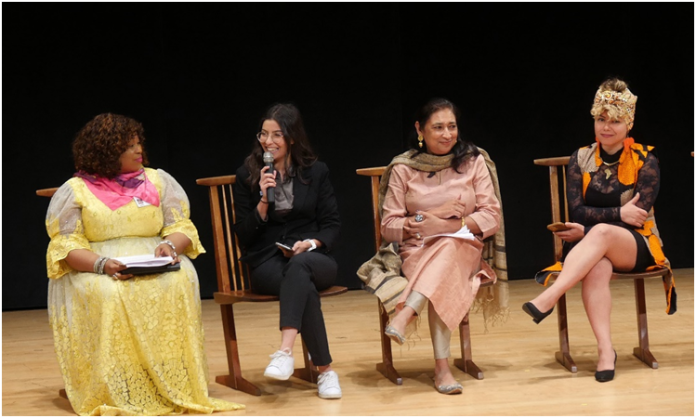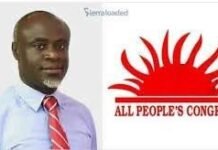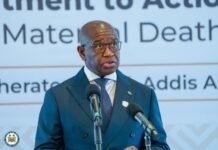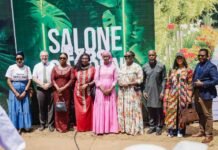By Foday Moriba Conteh
During a side event of the 77th UN General Assembly meeting in New York, Sierra Leone’s Minister of Gender and Children’s Affairs, Ms. Manty Tarawalli joined a high-profile session organised by UNFPA on ‘Claiming bodily autonomy to achieve sexual and reproductive health and rights’. Other speakers included Natalia Kanem, UNFPA Executive Director, Anita Bhatia, Deputy Executive Director at UN Women, Vicky Ford, Minister of State for Development in the UK Foreign, Commonwealth and Development Office, Government representatives and Parliamentarians from Finland, France, Mauritius and the US, and gender and youth activists.
Minister Tarawalli highlighted Sierra Leone’s political commitment to promoting the rights of women and girls in her remarks and said that the country fully supports the commitments made to achieve the programme of action of the International Conference on Population and Development (ICPD).
In 2021, Sierra Leone’s cabinet adopted a Gender Equality and Women’s Empowerment Bill that seeks to advance key priorities including reserving 30% of elective and public office positions for women, strengthening gender mainstreaming and introducing gender responsive budgeting, and expanding access to finance. The country is also working towards advancing the Child Protection Act, a Safe Motherhood Bill and other legislation to promote bodily autonomy and protect the health and rights of women and girls.
Minister Manty emphasized that education and economic empowerment of women are essential to advancing bodily autonomy, and called on the UN, civil society organizations, women’s groups and other partners to help ensure that these progressive policies and legislation are effectively implemented to empower and benefit women.
Opening the session, UNFPA’s Executive Director, Natalia Kanem, emphasized that without the fundamental abilities of a person to make decisions about their bodies, sexuality and their reproduction, other rights fade away and gender equality becomes more out of touch. When UNFPA launched its 2021 State of the World Population report, ‘My Body My Right’, it was with a view to normalising conversations around body autonomy as the right for women and girls to make choices over their bodies as a factor of freedom from violence, coercion and fear, Ms. Kanem said.
In her remarks, Vicky Ford, the UK’s Minister of State for Development in the Foreign, Commonwealth and Development Office (FCDO), called for a gender equal world, where women and girls have control over their bodies, make informed choices about having sex and having children, and are able to give birth safely, free of force and violence. The UK, she said, is proud to be the largest donor to UNFPA’s reproductive health supplies partnership in 2022, supporting 48 low and middle income countries to access modern contraceptive methods.
She highlighted the results of UNFPA’s partnership with the Ministry of Health and Sanitation and FCDO in Sierra Leone, noting that “Sierra Leone is a great country doing great things. Our saving lives program has supported the training of 1,284 midwives. They are known to play an essential role in delivering kind and respectful care.”




